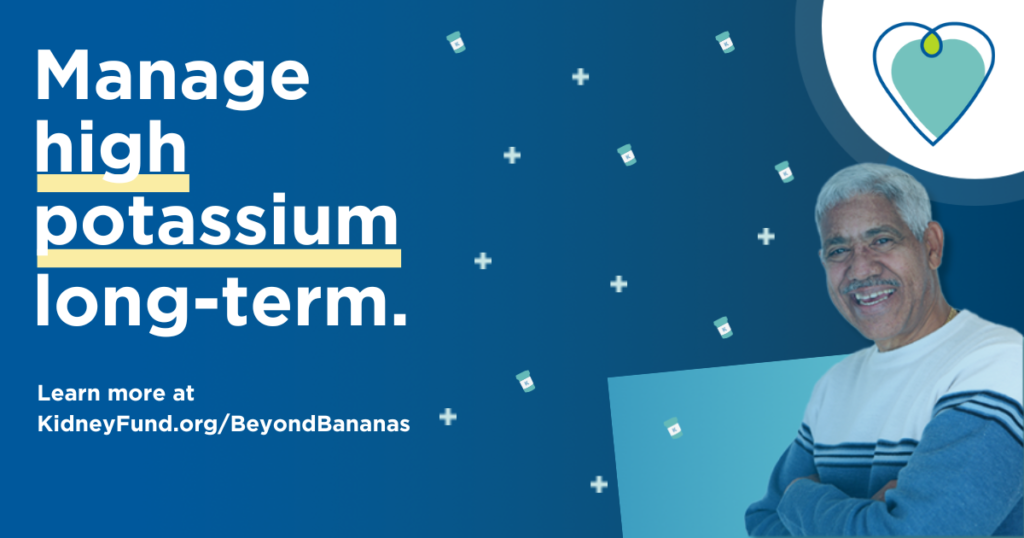Kidney and Heart Disease: How They Are Connected
Guest post provided by Michael Spigler, Vice President of Patient Support and Education, American Kidney Fund

When it comes to taking care of your health, think of heart disease and kidney disease as interconnected partners. If your kidneys don’t function properly, it can lead to issues like high blood pressure and inflammation, putting your heart at risk. Additionally, heart problems can negatively affect your kidneys by reducing blood flow to them.
Having chronic kidney disease (CKD) means that you’re more likely to get heart disease. The reverse is also true: heart disease can cause CKD. In fact, heart disease is the leading cause of death among people on dialysis, a life-saving treatment for people in kidney failure.
However, many people don’t know that the best way to prevent heart disease is to prevent or treat the problems that can cause it, such as diabetes, high blood pressure and anemia.
Consider these facts:
Continue readingAre the effects of shift work putting your heart at risk?
 According to the bureau of Labor Statistics, 15 million people work evening shift, night shift, rotating shifts or other schedules outside the traditional 9 am to 5 pm work day. These non-traditional hours are called shift work.
According to the bureau of Labor Statistics, 15 million people work evening shift, night shift, rotating shifts or other schedules outside the traditional 9 am to 5 pm work day. These non-traditional hours are called shift work.
Some shift workers include nurses, doctors, firefighters, police officers, flight attendants, pilots, waitresses, and truck drivers.
Shift work had been linked to various health conditions.
Health effects of shift work
Cardiovascular disease: Shift work increases cardiovascular disease on average 40%. The longer you perform shift work, the greater your risk.
Continue reading
Educate Children on Healthy Behaviors to Reduce Heart Disease Risk
 At the American College of Cardiology Scientific Session in March of 2012, information was presented from the University of Michigan Systems showing that children understand the effect of healthy behaviors on overall health.
At the American College of Cardiology Scientific Session in March of 2012, information was presented from the University of Michigan Systems showing that children understand the effect of healthy behaviors on overall health.
Project Health Schools, which is a community-University of Michigan System project, measured risk factors for heart disease in middle school children. Measured risk factors included lipid profiles and physical activity before and after receiving education on healthy behaviors. They found that after receiving education the middle school students showed positive behaviors towards improving lipid profiles, LDL cholesterol, and triglycerides. This indicates middle school children are not too young to understand the impact of healthy behaviors and they have the ability to implement changes.
This implementation of healthy behaviors at an early age is critical to lifelong health and reduced risk for heart disease, heart attacks and strokes. According to the Centers for Disease Control, 17% of children and teens are overweight or obese. This is triple the rate one generation ago and puts children at increased risk for health complications just as excess weight impacts adults.
Continue reading
What Bad Habits Are Increasing Your Heart Disease Risk?
 Annually, the American Heart Association (AHA), Centers for Disease Control (CDC), and National Institutes of Health (NIH) publish the latest statistics for heart disease and stroke. The most recent updates found deaths due to cardiovascular disease actually decreased by 33% over the past 10 years and deaths due to stroke were reduced 37%.
Annually, the American Heart Association (AHA), Centers for Disease Control (CDC), and National Institutes of Health (NIH) publish the latest statistics for heart disease and stroke. The most recent updates found deaths due to cardiovascular disease actually decreased by 33% over the past 10 years and deaths due to stroke were reduced 37%.
This goes to show that a significant amount of progress has been made to improve outcomes for those who suffer heart attacks and strokes. Great news!
What’s not so good news are the increasing risk factors of US adults making them more likely to suffer a heart attack or stroke. Did you know 68% of US adults are overweight or obese? Did you know 32% of children are overweight and 17% of children obese? And according to the AHA, CDC, and NIH, 33% of US adults do no engage in any aerobic leisure time physical activity. If you look around, it’s not so hard to believe that a majority of US adults are overweight and sedentary. Where do you fall?
Continue reading
Is Your Calcium Supplement Increasing Your Heart Attack Risk?
 Milk is good for the bones – right? Because milk is a good source of calcium and calcium promotes bone strength. Which means you may think a calcium supplement is an even better way to protect your bones – right?
Milk is good for the bones – right? Because milk is a good source of calcium and calcium promotes bone strength. Which means you may think a calcium supplement is an even better way to protect your bones – right?
A new report in the journal Heart, has determined calcium supplements are putting people at greater risk for heart attacks.
Researchers followed 23,980 individuals ranging in age from 35 to 64 years-old over an 11 year period. They saw an 86% increased risk of heart attack for those regularly supplementing calcium. Participants supplementing calcium only were twice as likely to have a heart attack compared to those not taking any vitamin supplements.
Continue reading
Treat Sleep Apnea to Reduce Heart Disease Risk
 Sleep apnea is a sleep disorder where there are abnormal stops (interruptions) in breathing or abnormally low breathing during sleep. Each stop (or pause) in breathing is called an apnea. This apnea can last anywhere from a few seconds to minutes and can occur repeatedly throughout the night.
Sleep apnea is a sleep disorder where there are abnormal stops (interruptions) in breathing or abnormally low breathing during sleep. Each stop (or pause) in breathing is called an apnea. This apnea can last anywhere from a few seconds to minutes and can occur repeatedly throughout the night.
Sleep apnea results in excessive daytime tiredness, impaired alertness, slower reaction time, vision problems, and behavioral effects (i.e. moodiness, belligerence, decreased attentiveness).
Increased Risk for Sleep Apnea
Here are a few characteristics that put you at increased risk of developing obstructive sleep apnea:
Excess weight – Excess fat deposits around the upper airway can obstruct breathing.
Large neck circumference – A neck circumference above 17 inches is linked to increased risk because the thicker neck may narrow the airway.
Continue reading



